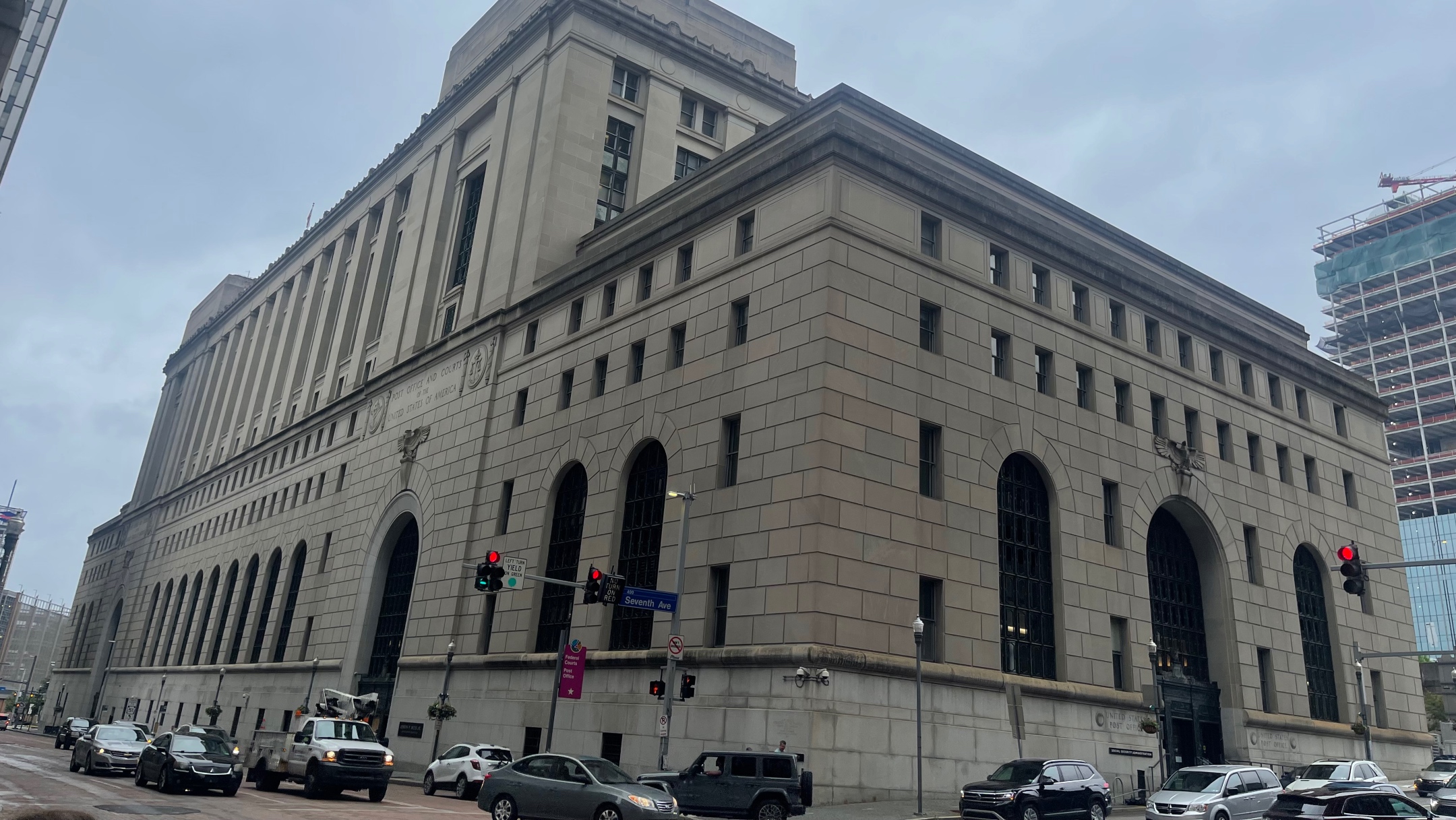Pittsburgh jury finds synagogue gunman eligible for the death penalty, setting up trial’s final phase
Jurors seemed to be unmoved by his lawyers’ arguments that his virulent antisemitism was delusional

The Joseph Weis federal courthouse in Pittsburgh, June 27, 2023. (Ron Kampeas)
PITTSBURGH (JTA) — Jurors in the trial of the gunman who killed 11 Jewish worshipers in a Pittsburgh synagogue took less than two hours to find him eligible for the death penalty, setting up a final phase of the historic proceedings in which the gunman may be sentenced to death.
On Thursday morning, the seven women and five men on the jury unanimously found that Robert Bowers, who attacked the Tree of Life building on Oct. 27, 2018, met all four thresholds of intent necessary for capital punishment. The jurors also agreed with the government’s case that the crime carried four aggravating factors that exacerbated the shooter’s capital offenses. They were seemingly unmoved by the defense’s argument that the shooter’s antisemitism was a product of his delusion.
On June 16, the jury found the defendant guilty of 63 crimes, including 22 capital crimes — two for each fatality.
The final phase of the trial will begin on Monday. In that portion, the jury will decide whether to deliver a sentence of death or life imprisonment without possibility of release.
In that phase, the jury will hear impact statements from some family members of the 11 people murdered by the gunman. Jurors will also hear from people who were injured or otherwise affected. Prosecutors said they expected to bring seven witnesses over two to three days.
The defense will then bring witnesses to prove mitigating factors, which lawyers said they expected to last five to seven days. Those witnesses are expected to describe the hardships the gunman suffered over his lifetime.
The alacrity of the verdict — jurors met for about an hour after closing arguments on Wednesday, and less than an hour on Thursday morning — suggests they summarily rejected arguments advanced by the defense that the gunman’s antisemitism was a sign that he was delusional.
Expert psychiatric witnesses for both sides who interviewed the shooter recently say he has no regrets, and the defense sought to use that fact to bolster its medical arguments that he was schizophrenic and did not have the intent to kill required for a death sentence.
This article originally appeared on JTA.org.















